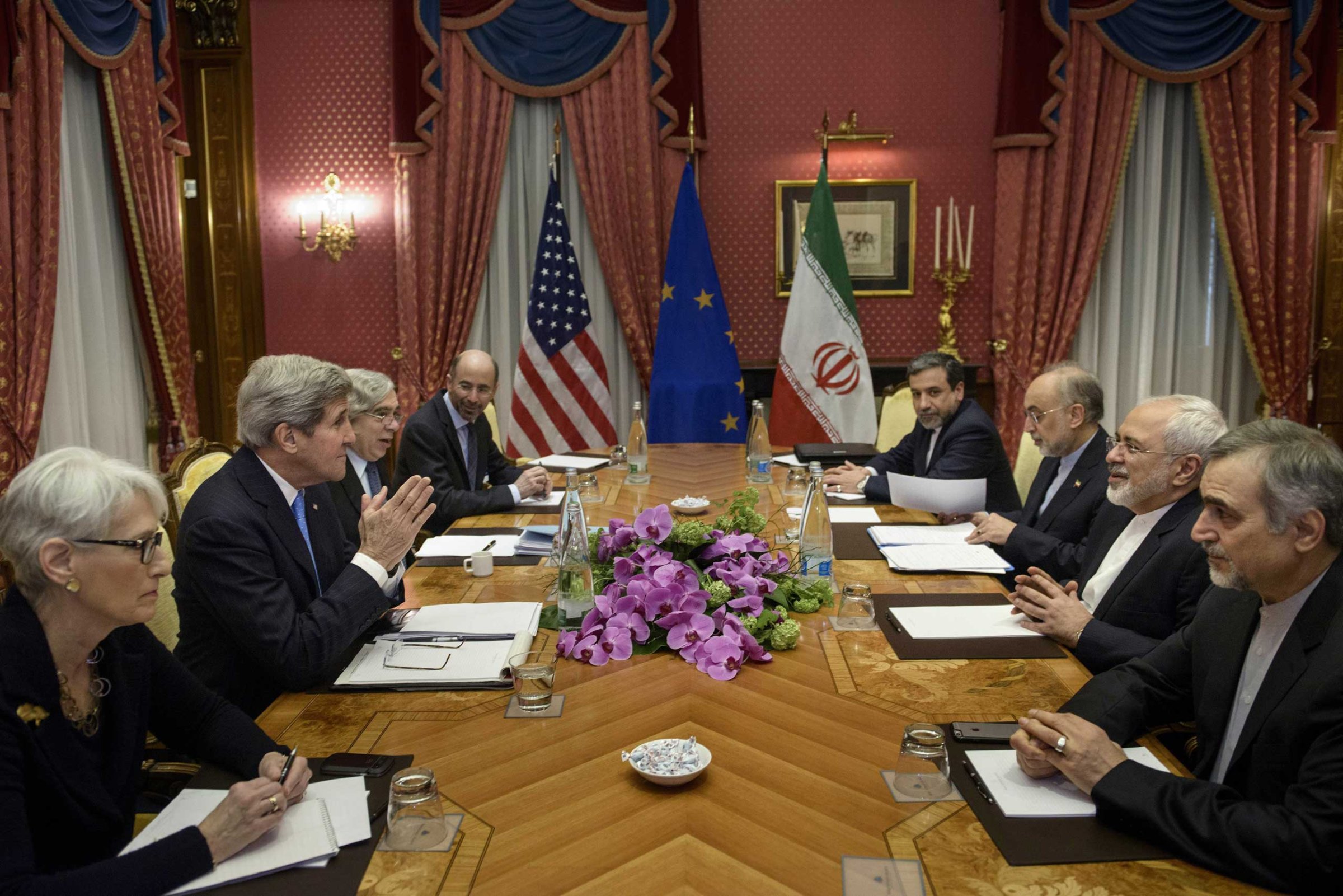
Michael B. Oren, Israel’s former Ambassador to the United States, is a Member of Israel’s Knesset from the Kulanu Party. He is the author of Ally: My Journey Across the American-Israeli Divide (Random House, 2015).
Want to purchase a carpet in the Middle East? If so, the first question the merchant will ask you is, “How much do you want to spend?” Seasoned buyers never answer. They know that whatever amount they cite will become the baseline for the negotiation. They understand that the merchant’s smiles, the many cups of tea he serves, his invitations to stroll along the riverbank, are all part of his selling tactic. So, too, are his protests — in response to any offer — of wounded pride. Veterans of Middle East carpet markets expect the give-and-take to be lengthy, even exhausting, but are always willing to leave the shop.
The parameters agreement for a Joint Comprehensive Plan of Action with Iran is an ideal example of how not to buy a Middle Eastern carpet. In 2012, President Barack Obama declared that, “The deal we’ll accept is that they end their nuclear program” and “abide by the UN resolutions” demanding that Iran cease all uranium enrichment and dismantle its nuclear plants. The Security Council’s five permanent members plus Germany could have offered the lowest possible price as their final bid — take it or leave it. Iran would have had little choice but to sell the carpet.
Yet, in reaching the parameters agreement, international negotiators were worn down by the protracted talks. They were persuaded by Iran’s displays of warmth and earnestness, and accepted its claim that the nuclear program was a matter of national pride similar to America’s moon landing. Most damagingly, when asked by the Iranians “how much do you want to spend?” the P5+1 replied by recognizing the Islamic Republic’s right to enrich and to maintain its nuclear facilities. This became the new baseline and the only remaining questions were: How much enrichment and how many facilities? The haggling had scarcely begun and already the merchant profited.
At this point, the only advantage the customer retains is the ability to stop bargaining. This is what Ronald Reagan did at the 1986 Reykjavik summit and later obtained significant Soviet concessions. But, despite repeated White House warnings that “Iran’s window to obtain a peaceful resolution will not remain open forever,” the window never closed. Nor did the Iranians ever believe it would or that they have to pay a price for keeping it open.
Instead of telling the Iranians that “if you don’t take this offer, our next one will be smaller,” the P5+1 said, “If you don’t like these terms, perhaps we can improve them.” Rather than responding to Iranian intransigence with heightened sanctions and credible military force, negotiators removed these options. Experienced carpet buyers know when to walk away and let the merchant come chasing after them. But, in reaching the parameters agreement, it was the Iranians, rather than the P5+1, who always threatened to bolt. The customers begged the merchant to stay.
The Middle Eastern form of negotiating, perfected over thousands of years, should no longer be alien to Westerners. The Palestinians have employed it repeatedly, starting each round of peace talks with “how much are you willing to spend?” If the answer is a Palestinian state based on the 1967 lines with mutually agreed swaps and its capital in East Jerusalem, be assured that this will be their new opening position. The Palestinians — not the Israelis — keep walking away from the table, each time pocketing their newly-obtained concessions. Nobody should be surprised, when discussions on a final nuclear agreement begin, Iranian delegates treat the parameters agreement as the baseline for garnering an even better price.
To prevent that, the United States and its P5+1 partners must reject any further Iranian demands. They should make clear to Tehran that it risks losing the gains it has made while facing punitive measures such as ramped-up sanctions. They must be prepared to walk way. At the same time, effective mechanisms must be put into place for rapidly responding to Iranian violations. The world must provide for the possibility that the treaty — like the carpet — will fall apart.
The Iranians are not just expert carpet merchants. They also deal in terror and endangering American allies. Proceeds from this deal will no doubt fund those activities. And the Iranians, we know, cheat. For more than 30 years, they have lied about every aspect of their nuclear program, built secret, fortified facilities, violated the Non-Proliferation Treaty, and hidden their previous work on atomic weapons. Still, much of the world wants their carpet. Only later, when its colors quickly fade and its threads unravel, will they discover that, in the Middle East, there is no return policy.
More Must-Reads from TIME
- Why Trump’s Message Worked on Latino Men
- What Trump’s Win Could Mean for Housing
- The 100 Must-Read Books of 2024
- Sleep Doctors Share the 1 Tip That’s Changed Their Lives
- Column: Let’s Bring Back Romance
- What It’s Like to Have Long COVID As a Kid
- FX’s Say Nothing Is the Must-Watch Political Thriller of 2024
- Merle Bombardieri Is Helping People Make the Baby Decision
Contact us at letters@time.com